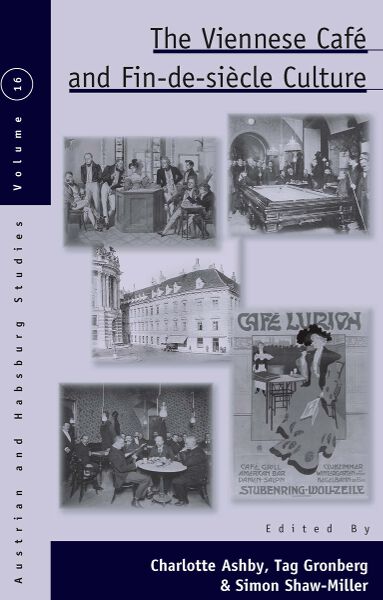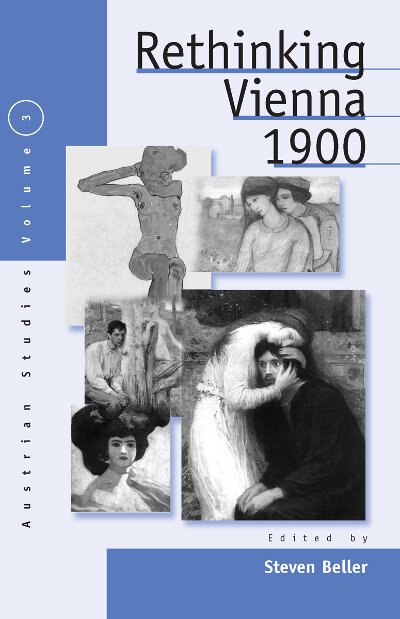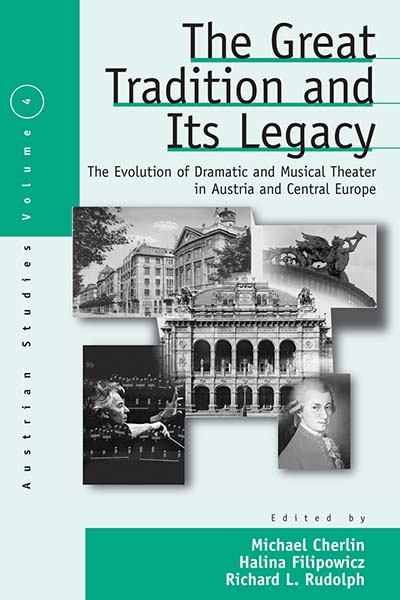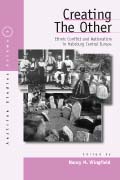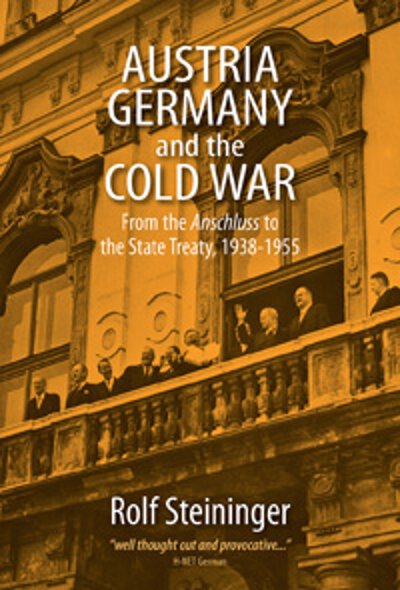
See Related
History JournalsEmail Newsletters
Sign up for our email newsletters to get customized updates on new Berghahn publications.
Austria, Germany, and the Cold War
From the Anschluss to the State Treaty, 1938-1955
Rolf Steininger
180 pages, bibliog., index
ISBN 978-1-84545-326-8 $135.00/£104.00 / Hb / Published (March 2008)
ISBN 978-0-85745-598-7 $24.95/£19.95 / Pb / Published (January 2012)
Reviews
“…with its useful bibliography and index, this is a most lucid and helpful contribution to a satisfying growth in English language material devoted to Austria under the Allied occupation.” · German History
“Steininger’s meticulous attention both to the subtle details of the negotiations (and the subsidiary issues they raised) combined with his broader view of the international context sets this book apart from the numerous other commemorative histories that appeared to mark the fiftieth anniversary, and makes it a particularly useful study to have translated into English.” · European History Quarterly
"Overall, ... Steininger has produced a compact summary of research on the Austrian State Treaty. The chronology of important events, the bibliography, and, above all, the index constitute useful tools for the reader. It is particularly welcome that this short and handy textbook summary has now been made available to a wider audience via the English-language edition." · German Politics & Society
"The story told certainly fits into its ostensible contexts of postwar diplomatic history and international affairs, but, whether intended by the author or not, this is also the story of the course of post-imperial Austria's incestuous infatuation with, marriage to, and divorce from its German cousin. How the first decade of the Cold War helped to bring this about so that the Austrian entity that emerged from this German liaison did so with relatively few congenital deformities is not only the underlying story of this book, but perhaps its more important accomplishment." · Central European History
"[Steininger] has given us an erudite, comprehensive analysis that illuminates the important role Austria played in that initial decade of the Cold War. This book should read by scholars, undergraduates, and graduate students who are interested in 20th-century diplomatic history of Austria and Germany and the four major powers of the Grand Alliance. It is also excellent for those interested in the Soviet mind and in Soviet diplomatic maneuverings of the first decade of the Cold War." · Journal of Slavic Military Studies
"Overall, Der Staatsvertrag is an exceptionally useful work. The argument is both well thought out and provocative. It is short enough for undergraduate consumption, detailed enough for graduate students, and broad enough to apply to a variety of courses dealing with Austria, Germany, Central Europe, and the Cold War." · H-NET German
"Steininger contributes to our knowledge of Soviet behavior regarding Austria and German, while summarizing with remarkable skill the complex and frequently baffling events that transpired over a period of seventeen years... Steininger's book fits nicely with the historiography of Austria's role as a battlefield in the Cold War and indeed of Austria's importance in four-power wrangling over the fate of Germany, a more important issue." · Austrian History Yearbook
Description
In the 'Moscow Declaration' of 1943 the Allies officially propagated the notion of Austria as the first victim of Hitlerite aggression and announced their intention to set up a "free and independent Austria" after the war, which finally happened in 1955. By questioning why it took so long to get to this point, the author addresses issues such as the victim thesis, Austrians as perpetrators, Austrian anti-Semitism and official attempts to mitigate its effects after the war. He discusses the various proposals for post-war Austria and connects for the first time the issues of Anschluss, German question, Cold War, and the State Treaty. He makes it clear that the question of Austria was from the very beginning inextricably linked with the more important question of Germany.
Rolf Steininger, professor emeritus, from 1984-2010 head of the Institute of Contemporary History at the University of Innsbruck, presently at the Free University of Bolzano; European Union Jean-Monnet Professor, senior fellow of the Eisenhower Center for American Studies of the University of New Orleans, and the author of numerous books, articles, and television documentaries. www.rolfsteininger.at

